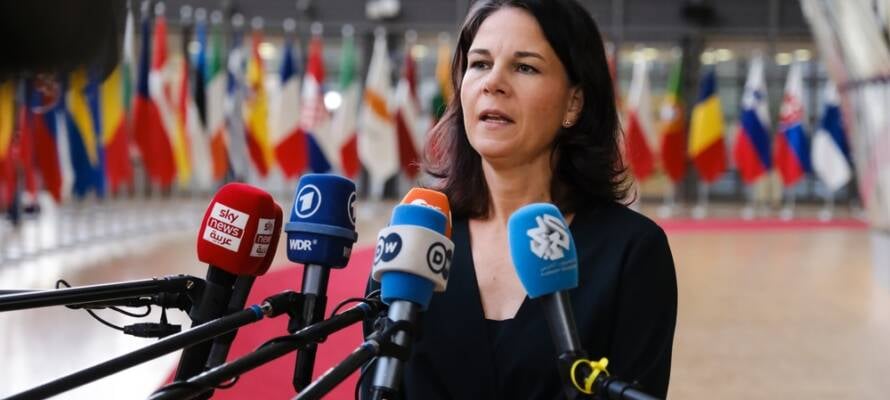Germany will close all Iranian consulates in response to Iran’s execution of German–Iranian citizen Jamshid Sharmahd, marking an escalation in diplomatic tensions.
Germany will close all three Iranian consulates on its soil in response to Iran’s execution of a German-Iranian dual national, Foreign Minister Annalena Baerbock announced on Thursday.
“We have repeatedly and unequivocally made it clear to Tehran that the execution of a German citizen will have serious consequences,” Baerbock said in a televised speech announcing the closures.
The consulates are located in Frankfurt, Hamburg, and Munich. According to German media, the consulate employees will lose their rights to live in Germany and must leave the country, unless they have German citizenship.
“The fact that this assassination took place in the light of the latest developments in the Middle East shows that [Iran’s] dictatorial, unjust regime … does not act according to normal diplomatic logic,” Baerbock said. “It is not without reason that our diplomatic relations are already at an all-time low.”
Baerbock’s comments came after the Iranian judiciary announced the execution of German–Iranian national Jamshid Sharmahd, 69, on Monday.
Sharmahd, a German citizen of Iranian descent who lived in the United States, was sentenced to death last year on charges of “corruption on earth,” a capital offense under Iran’s Islamic laws. The Iranian regime had accused and convicted him of planning a 2008 attack on a mosque that killed 14 people.
Sharmahd’s family has long maintained that he was innocent. The German government and human rights activists similarly rejected the accusations against him, calling the trial a sham.
However, Iran defended the execution.
“No terrorist enjoys impunity in Iran. Even if supported by Germany,” Iranian Foreign Minister Abbas Araghchi posted on X/Twitter on Tuesday. “A German passport does not provide impunity to anyone, let alone a terrorist criminal. Enough with the gaslighting, [Annalena Baerbock].”
Sharmahd had reportedly worked for an Iranian opposition group’s website that strongly criticized Iran’s Islamist regime. Iranian security forces seized the dual national in 2020, when he was traveling through the United Arab Emirates.
German Chancellor Olaf Scholz lambasted the execution as a “scandal that I condemn in the strongest possible terms.”
Germany recalled its ambassador to Iran for consultations over the execution and summoned the Iranian charge d’affaires to voice Berlin’s protest, according to the German foreign office.
On Thursday, Baerbock said Germany would seek European Union-wide sanctions against those involved in Sharmahd’s execution and called on the EU to add Iran’s Islamic Revolutionary Guard Corps (IRGC) to its list of terrorist groups.
The top German diplomat also accused Iran of trying to use Germany’s support for Israel in the ongoing Middle East conflict to justify Sharmahd’s killing. Araghchi referenced German support for Israel in his tweet earlier this week in an apparent attempt to say Berlin was being hypocritical on the issue of human rights.
During her speech, Baerbock noted that more Germans are currently detained and slammed Iran for using hostages for political gain.
“Further Germans are also being unfairly held. We are also deeply committed to them and continue to work tirelessly for their release,” she said.
